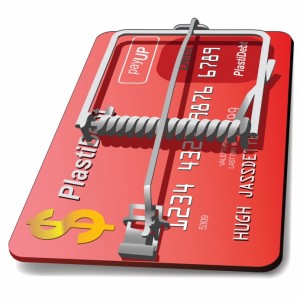 The experiences of the past several months have taught us all one thing: We need to get out of credit card debt, one way or another.
The experiences of the past several months have taught us all one thing: We need to get out of credit card debt, one way or another.
The credit card companies are going to keep increasing rates and fees, and before long a $100 payment might only reduce our balance by $50. It may not be that extreme, but it’s a given that more of each payment will go to interest and fees, and less to paying off the debt.
We do have some relief coming in February 2010, when card issuers will be required to apply anything over the minimum payment to our balance carrying the highest rate, but by then, all our rates may be much higher than we are comfortable with.
So – we need to be rid of them.
If you have just one card, you can throw any extra money at it and get it down quickly. But most of us have more than one, so the first thing to do is take a good look at the balances, the interest rates, the annual fees, and the credit available on each.
One approach is to consolidate all of your balances onto the card that carries the lowest interest rate. At one time, we saw promotional rates as low as 0.99% – and moving everything to that card would allow for a fast pay-down.
I haven’t seen anything that low for the last 6 months, but maybe it exists. But – even if it does, there’s a second factor to consider before you transfer all your balances. If you use more than 30% of the available credit on any one account, you’ll harm your credit scores. Look at the available credit and keep your future plans in mind before making this decision.
Remember also that even if you have a $20,000 credit limit and transfer only $6,000, you could open your next statement and find that your credit limit is now only $6,000. Credit card companies have been doing this to consumers across the board,
The other approach is to cut back on discretionary spending and add extra money to the payment on your cards. You could spread that out evenly, but getting rid of a payment entirely is more satisfying.
Most would recommend paying off the balance with the highest interest first. That will save you the most money. But if you need the mental and emotional boost of getting something – anything – paid in full, look instead to the card with the smallest balance.
Then, when you’ve paid that off, apply all the money you were paying on that card to paying off the next one. You’ll have success faster than you think.
Author: Mike Clover
CreditScoreQuick.com your resource for free credit reports, credit cards, loans, and ground breaking credit news.



